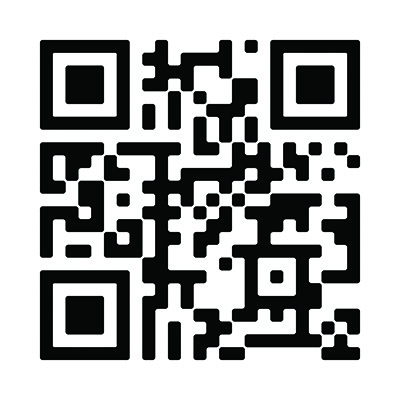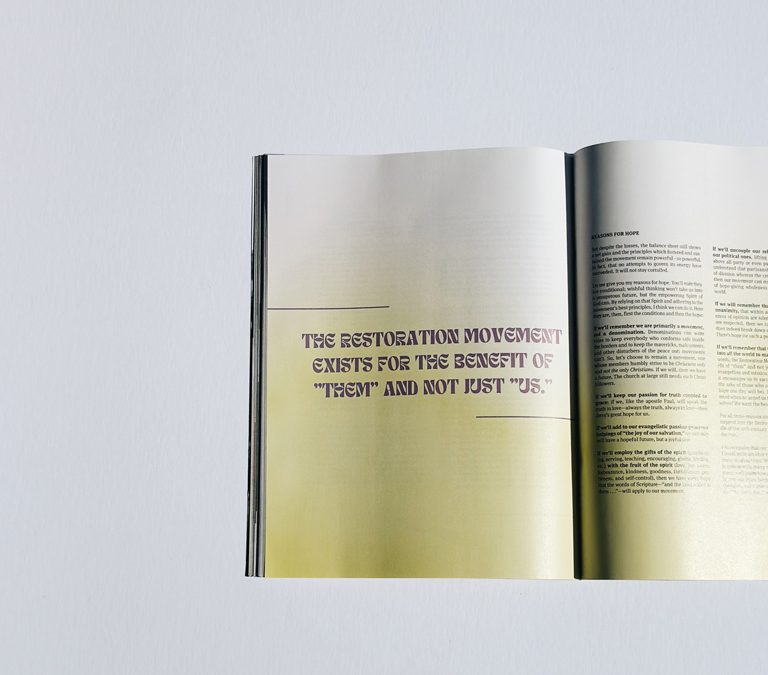By Randy Frazee
It was the greatest revival in Israel’s history.
In 2 Kings 22 a little boy named Josiah, 8 years old, became king of Judah during the period of the Divided Kingdom. Imagine that. I thought becoming a lead pastor at the age of 28 was a stretch and possibly a bit irresponsible. However, of the 40 kings who reigned during the time Judah and Israel were divided, Josiah was one of only five “who did what was right in the sight of the Lord.” Never underestimate the spiritual capacity of a kid.
When Josiah was 26, he sent a scribe to the temple to withdraw money to pay the construction workers for the cost of goods and repair work. While he was there, the priest came out and said, “Uh, while we were digging around in the storage room, we found this book.” It was the Book of the Law!
The Bible Got Lost in the Temple!
The scribe went back to King Josiah and said, “The priest gave me this book they found in the temple.” The dude truly didn’t know what it was. At the king’s request, the scribe started reading the book to the king. Upon hearing what the book said, the king tore his clothes as a sign of mourning and penitence; he then brought the words of God to the people, and it led to the greatest revival in Israel’s history.
The core lesson here:
When God’s people let God speak, lives are changed.
About 650 years before Josiah made this courageous move, Moses knew this axiom of transformation and made appropriate provisions before he died (good leaders do such things). It’s recorded in the last chapter in Deuteronomy. Moses knew the children of Israel likely would hedge on their faith to God once he was gone, so he laid down a law that every seven years the people should gather—the men, women, and children—and read through the Law from beginning to end.
Of course, the people didn’t follow the pattern and things did not go well for Israel. Fast-forward to the end of the Old Testament. Israel was at rock bottom. They had just returned home from years of exile. They were beaten down, tired, humiliated, and vulnerable to the surrounding nations. This is when Ezra stood up, at the request of the people, and publicly read the whole Book of the Law from morning to night. It had been 150 years since the last time they experienced what Moses established. They did it for seven days straight. Once again, revival broke out.
When God’s people let God speak, lives are changed.
This pattern of the public reading of Scripture carried on into the New Testament, and this matters to Restoration people.
“Until I come, devote yourself to the public reading of Scripture, to preaching and to teaching” (1 Timothy 4:13).
The liturgy of the first-century church involved the reading of actual Scriptures. They would read the entire letter in their public worship gatherings. In his book Reading Romans Backwards, Scot McKnight proposes that Phoebe not only delivered Paul’s letter to the Romans, but she read it in dramatic fashion according to how Paul wanted it read. Reading the entire letter in one setting would take 70 minutes. With this simple strategy, the leaders spread the gospel and grew the church from Jerusalem to the ends of the earth as Jesus commissioned them (Acts 1:8) in just 29 short years. What was going on here?
When God’s people let God speak, lives are changed.
The research proves this.
During my time as a teaching pastor with Willow Creek Community Church, I was responsible for overseeing the Reveal survey at the church. Reveal is the largest body of research we have that asks the congregant what is catalyzing their spiritual growth and how the church is doing at helping them take next steps.
Here are the two greatest global learnings from the study:
1. Bible engagement is the No. 1 catalyst for spiritual growth, with no close second.
No matter where people are on the spiritual continuum—from Explorers to the Christ-centered—this is what moves everyone forward in their next step spiritually.
The second great global learning is . . .
2. The No. 1 thing people want from their churches is to help them understand the Bible.
The No. 1 thing people need and the No. 1 thing people want are the same. Very seldom in history do both of these things collide. I was born at night . . . but not last night. A good pastor would put most of his eggs in this strategic basket—get people into the Word!
Where are we today?
Fast-forward to today. I think it is possible that . . .
We have lost the Bible in the church . . . but not in the same way it was lost in the temple storage closet. In my opinion, there has been a grave imbalance between the public reading of Scripture and our preaching and teaching. Paul told us that preaching and teaching are good and necessary, but we all would agree, I think, that we preachers have hogged all the time with our preaching and teaching. I think we all would agree that our people need a healthy diet of pure Scripture, not just our words about Scripture.
The Bible calls the Scripture food.
“Then he said to me, ‘Son of man, eat this scroll I am giving you and fill your stomach with it.’ So I ate it, and it tasted as sweet as honey in my mouth” (Ezekiel 3:3).
Jeremiah said God’s words filled his heart with joy and delight (Jeremiah 15:16), yet most of our people are not “eating the Word.” They are malnourished; some are starving.
Research shows that the average American family owns four Bibles, and yet 41 percent of them confess to never reading it. Here is what Gallup concluded after a nationwide study:
The churches in America face no greater challenge than overcoming biblical illiteracy, and the prospects for doing so are formidable because the stark fact is, many Christians don’t know what they believe or why. Our faith is not rooted in Scripture. We revere the Bible but don’t read it. Some observers maintain that the Bible has not in any profound way penetrated our culture.
We have a serious Bible literacy problem in our churches that has left them ill-equipped to handle the assault on the truth coming from every possible angle in our current culture. And this is happening on our watch.
Where do we go from here?
Wall Street analyst Bill Hwang, who deeply loves God’s Word and dines on it all the time, presented a proposal to me. “With the 40 minutes you have to share the message with your church each week, how about you give the Creator of the universe 20 minutes to speak, and you take the other 20 minutes? Hwang’s suggestion was a bit jarring, and yet it was so obvious. It seems too radical. I certainly haven’t gotten there yet, but I’m moving in that direction.
It is not that our people don’t want more Bible. Research tells us that most people, not just the people who sit in church, have “reading through the Bible” on their bucket list. So, right up there with “climbing Mount Everest” and “jumping out of an airplane,” people say they want to “read through the entire Bible” before they “kick the bucket.” Many people find the first two goals more accessible than the last.
The strategy for many churches at the beginning of each new year is to encourage their members to read through the Bible on their own. I have found this solo adventure to be for the few “Green Beret” believers in our churches. Simply inviting the masses to try harder is a nonstarter for most people; plus, it buries them in a pile of guilt.
Here is a solution that is not only biblical but simple, sustainable, reproducible, and downright effective. (This strategy should be music to the ears of people in the Restoration tribe.) Ready for it?
Restore the practice of the public reading of Scripture.
Yep, let’s try what worked in the Old Testament and the New Testament. Let’s try what produced great revivals and unprecedented transformation in people’s lives. Here is the secret sauce:
Listening to the Bible in community, regularly, as you work through the entire Bible—not just your favorite passages.
While I think we need more public reading of Scripture in our worship services, the likely place to gain the most traction is in small groups. My neighborhood group is doing this with great success.
While you can simply get people together and read the Scriptures out loud, I think the best strategy is to use a high-quality, dramatized recording of the Bible. The best one I have found is via the free “Public Reading of Scripture” app. (See the sidebar at bottom of this article.)
There are several listening plans imbedded into the app. Select the one that works for you. Some groups choose to listen once a week for 45 minutes or 60 minutes. No preparation, just show up and take in God’s Word together. My group gets together once a week and listens for 20 minutes, and then each person has committed to listen to 20 minutes of Scripture daily on their own for the other six days. It takes 98 hours to read through the entire Bible in English.
Our group will get through the entire Bible, together, in one year. Bucket list—check. The app even has a tracker so you can monitor your progress. Every time I mark off a chapter as read, my brain experiences a hit of dopamine that makes me feel quite happy.
But best of all, people are hearing God speak directly to them—not just our favorite passages, but the whole counsel of God. Could it be that this simple solution could spark the kind of revivals and spiritual movements like we saw in the Old and New Testament? Why should we expect this?
When God’s people let God speak, lives are changed.
Randy Frazee is the lead teaching pastor of Westside Family Church in Kansas City. He is the author of 15 books and the architect of The Story and Believe Bible Engagement campaigns.
_ _ _

Give It a Try
After downloading the “Public Reading of Scripture” app, invite some people over and give it a try. Cast the Scriptures to the TV monitor or just listen without any visuals . . . and away you go. Here is a collection of Scriptures you can listen to in 30 minutes:
• Psalm 1 (1 minute)
• Ezekiel 1-3 (17 minutes)
• John 6 (10 minutes)
• Psalm 2 (2 minutes)
• Total = 30 minutes of listening





It is God’s powerful living Word that changes hearts and lives. Messages in most churches have too many personal story fillers, etc. I tune out during most of the fillers. I love churches that go through a book of the Bible verse by verse. You get the whole context and the whole truth to apply and it will cover every topic God wants us to hear. God reveals Himself and His will through His Word and it is His love letter to us, always pointing us to Jesus!
People learn in different ways: some by listening, some by reading, etc. I agree that reading publicly is very important, not only for learning but for demonstrating that your church is observing the Scriptures as your basis of faith.
I liked what Randy Frazee said about letting people hear the Word of God.
It reminded me of David Watson. When, for the first time, he really SAW John 6:44&45 it changed everything. He had planted a couple of dozen churches in the states and as a missionary and had been assigned an unreached people group in North India. Based especially on John 6:45b he began arranging for people to hear the Word of God. They put 1000 audio bibles in 1000 villages. No preacher, teacher, or evangelist went to any of the villages and over 600 churches resulted. He walked into a village where he knew there had never been a Christian. They were all followers of “The Way.” one of the educated men in the village had been in a big city where he was given a copy of the Gospel of John. He took it home and read it to the villagers and they all became Christians.
Watson believes preachers and teachers can unintentionally be seen as the experts rather than the Word of God being the expert.
Over the last 30-plus years his ministry has resulted in hundreds of thousands of new churches and tens of millions of new disciples, most in places where people know they can be killed for becoming a Christian.
Four sources of information on David Watson’s ministry:
1. David Watson telling his story including the what and why of his ministry at: https://www.movements.net/blog/2016/08/29/121-david-watson-my-journey-with-disciple-making-movements.html?rq=david%20watson
2. The book, Contagious Disciple Making by David and his son Paul.
3. The Contagious Disciple Making App. Scroll down to the “tab” “Interviews with David Watson for 15 interviews. He tells stories and explains a lot of the what, why, and how of his ministry.
4. 30-plus videos of David Watson teaching at: https://sheepamongwolves.thinkific.com/courses/disciple-making-with-david-watson